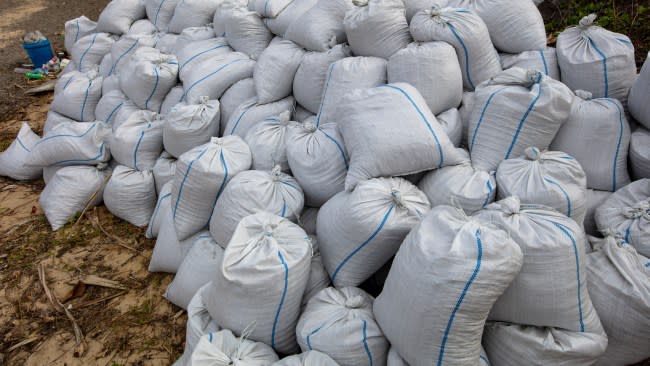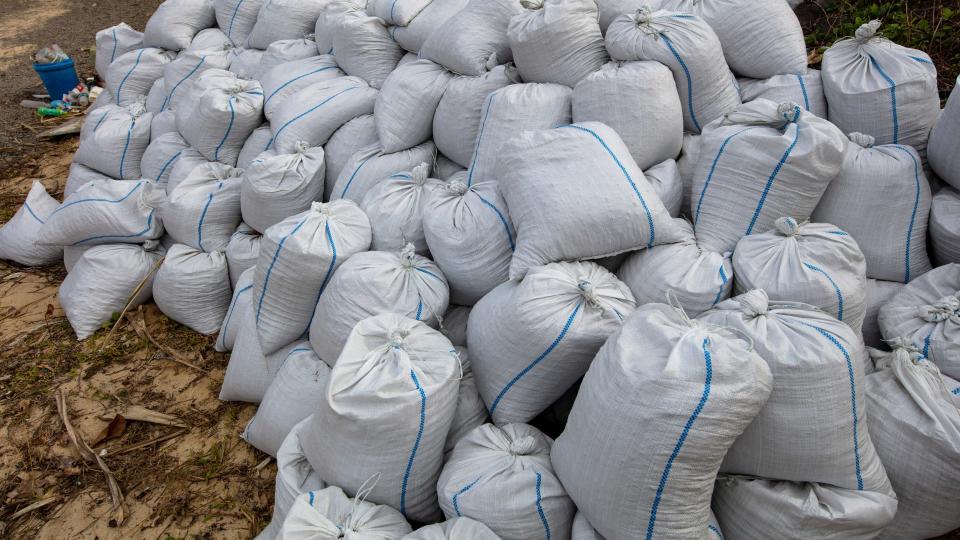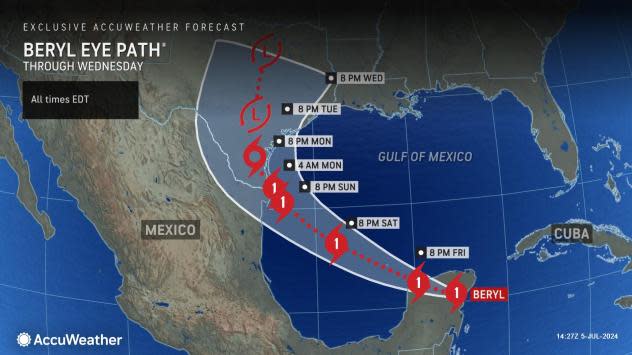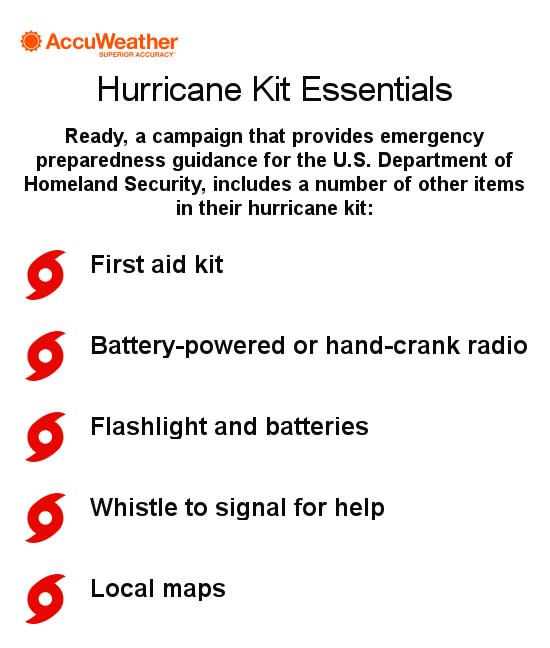Hurricane Beryl: Essential Information
Hurricane Beryl is leaving devastation behind on multiple Caribbean islands and Mexico, with the AccuWeather forecast Eye Path showing the storm nearing Texas late weekend and into early Monday.
The Red Cross has teams in Texas staging supplies, preparing to open or support evacuation centers, coordinating with local officials and paying very close attention to updated forecasts.
You can find and download hurricane safety checklists in various languages at redcross.org and download the FREE Red Cross Emergency App to find emergency shelters near you.
 |
Texas residents in low-lying beach areas and flood-prone areas should take additional precautions. It is crucial for residents to remain informed and monitor news and weather updates closely. Residents are advised to take precautionary measures now by securing outdoor belongings and preparing an emergency kit to be storm-ready.
 |
Sandbags awaiting distribution. (Photo credit: Getty Images) |
Get the FREE AccuWeather app
•Have the app? Unlock AccuWeather Alerts™ with Premium+
Texas residents: Sign up for your community or county warning system. Follow local weather alerts.
Texas residents: Register for STEAR if you or anyone you know will need assistance in an emergency.
2-1-1 for shelter, food and disaster services
7-1-1 for Relay Texas Service
1-800-452-9292 for TxDOT statewide road closures
1-800-525-5555 for roadside assistance
 |
Gather food, water, and medicine.â¯Organize supplies into a Go-Kit and a Stay-at-Home Kit.
Go-Kit: 3 days of supplies that you can carryâ¯with you. Include backup batteries and chargers for your devices (cell phone, CPAP, wheelchair, etc.)
Stay-at-Home Kit: 2 weeks of supplies. Stores and pharmacies might be closed.
Have a 1-month supply of medication in a child-proof container.
Include important contact information in your communication plan, such as:
Phone numbers and email addresses for everyone in your household
Phone numbers for your household's health care providers (doctors, pharmacists, counselors, and veterinarian)
Phone numbers and addresses for schools, childcare providers, caregivers, and workplaces
Phone numbers for emergency services, your utility providers, and your insurance companies
Poison Control Center: 800-222-1222
Animal Poison Control Helpline: 888-426-4435
Disaster Distress Helpline: 800-985-5990 or text TalkWithUs to 66746
Heed all directions of local emergency management, especially as it pertains to evacuations. If you must leave, bring your pets with you.
Find a local shelter,
Find an open Red Cross Shelter near you
Do not drive across flooded roads or past protective barriers. Turn around, don't drown.
Visit Drivetexas.org for flooded roads and conditions.
The best thing you can do for your pets is to plan ahead so you are ready to care for them during a disaster. Bring your pets indoors as soon as local authorities say a storm is coming and have your pet emergency preparedness kit ready.
Contact your local emergency management agency for information about which emergency shelters allow pets. Try to call the shelter before you go, as some pet-friendly shelters may require advance notice. Your local humane society or veterinary hospital may also have information about where you can take your pets during an evacuation.
You can also go to a pet-friendly hotel or motel instead of a shelter. Have a list of pet-friendly lodging handy in case you need to evacuate quickly.
Natural disasters affect animals as much as they do their human counterparts. The Texas Animal Health Commission (TAHC) works with local, state, federal, non-governmental, and sector partners to help plan for, respond to, and recover from natural disasters that affect livestock, companion animals, and service animals.






